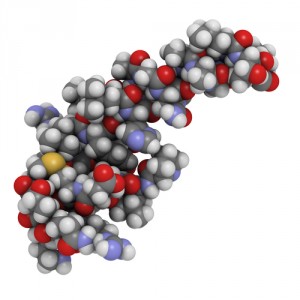Alzheimer’s Might Be Prevented By Protein That Wakes the Brain Up From Sleep

 A brief study entitled “Potential role of orexin and sleep modulation in the pathogenesis of Alzheimer’s disease” identified orexin, a protein that triggers the brain to wake after sleeping, as a potential new factor in Alzheimer’s disease. The study was published in November issue of The Journal of Experimental Medicine.
A brief study entitled “Potential role of orexin and sleep modulation in the pathogenesis of Alzheimer’s disease” identified orexin, a protein that triggers the brain to wake after sleeping, as a potential new factor in Alzheimer’s disease. The study was published in November issue of The Journal of Experimental Medicine.
Previous studies showed humans with preclinical evidenced Alzheimer’s disease exhibit sleep disturbances, both in duration and quality. While Alzheimer’s disease is characterized by the accumulation of amyloid beta protein plaques, and that this accumulation progresses with the disease and leads to the symptoms of dementia and memory loss, how sleep deprivation and duration affects amyloid beta protein plaques’ accumulation is not well understood.
In this study, a team of researchers at the Washington University School of Medicine in St. Louis aimed to understand this link, and they bred mice genetically modified to accumulate amyloid beta plaques with mice who lack the gene for orexin. They observed that the offspring of this mating exhibited an increased sleep duration with significantly reduced accumulation of amyloid beta plaques when compared to the offspring of mice with orexin protein. The researchers then performed the experiment in reverse, and increasing orexin levels in mice resulted in the reversed phenotype, i.e., mice slept less and had increased accumulation of amyloid beta plaques. Notably, when orexin levels were increased in a particular area of the brain — the hippocampus — they observed no differences in either sleep duration and plaque accumulation.
Thus, modulating orexin levels represent a prospective new strategy in Alzheimer’s disease research. As David M. Holtzman, M.D., head of the Department of Neurology and study leading author noted, “This indicates we should be looking hard at orexin as a potential target for preventing Alzheimer’s disease. Blocking orexin to increase sleep in patients with sleep abnormalities, or perhaps even to improve sleep efficiency in healthy people, may be a way to reduce the risk of Alzheimer’s. This is important to explore further.”






